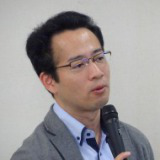Urban and Building Environmental Engineering
Staff
Research Topics
Energy is essential for maintaining human activity. However, consuming energy not only causes global environmental issues such as global warming and energy resource depletion, but also causes local (urban) environmental issues such as heat island phenomenon and air pollution. We have been researching in our laboratory to clarify the way urban structures and the related energy systems should be built in the near future in order to realize a comfortable urban environment while maintaining a sustainable earth.
Sustainable cities and architecture design for the realization of zero-carbon society
|
Japanese Government has been aiming to realize carbon neutrality in 2050, but in order to achieve this, not only the active introduction of renewable energy, but also the transformation of urban structure and the practical application and popularization of ZEB / ZEH etc. and it is essential to continuously promote the creation of innovation for decarbonization. our Laboratory has been evaluating CO2 reduction measures using computer simulations from dense cities to rural mountainous areas in order to establish the ideal way of sustainable cities and architectural design methods in the near future. |
Thermal impacts on citizens due to global and local climate change in cities
|
In big cities such as Tokyo and Osaka, in addition to global warming, the urban heat island phenomenon causes rapid warming, which has various effects on citizens such as energy / resources, health risks, and air pollution. Our Laboratory focuses on the aspect of the heat island phenomenon as an environmental issue for urban dwellers, quantifies the merits and demerits of the heat island phenomenon as much as possible, and conducts various analyse to propose rules for introduction method of countermeasures. |
Relationship between energy consumption behavior and energy literacy
|
In order to realize a zero-carbon city, it is important for the people living there to live consciously every day, and it is thought that there is a great relationship between environmentally friendly energy consumption behavior and energy literacy. Our laboratory has been invesigating a psychological model of values and awareness behind energy-saving behavior and the preference of electric power companies. And we are considering how information provision and environmental education should be to lead citizens to energy-friendly behavior. |
|
Publication List
- (1) Miwako Fujita and Daisuke Narumi: Study on Energy Consumption of a Grocery Store (part 3): Proposal of Power Consumption Calculation Method for Refrigerating and Space Conditioning Considering Sensible Heat / Latent Heat Balance, Journal of Environmental Engineering (Transactions of AIJ), Vol.87 No.798, 2022.8
- (2) Chenghao Wei, Miwako Fujita and Daisuke Narumi: Evaluation of Energy Consumption and Indoor Thermal Environment of Grocery Store using CFD Model (part 2): Effect of A&C Set Temperature and Ventilation Volume on Energy Consumption of Display Cases and A&C using CFD Model, Journal of Environmental Engineering (Transactions of AIJ), Vol.87 No.792, pp.134-144, 2022.2
- (3) Ayami Otsuka, Yujiro Hirano, Shogo Nakamura, Tsuyoshi Fujita and Daisuke Narumi: Longitudinal Evaluation of Energy-saving Effects and Their Implication Using Electricity Monitoring Data in Shinchi Town, Fukushima, Global Environmental Research, 24(2), pp.207-216, 2021.6
- (4) Daisuke Narumi, Ronnen Levinson and Yoshiyuki Shimoda: Effect of Urban Heat Island and Global Warming Countermeasures on Heat Release and Carbon Dioxide Emissions from a Detached House, Atmosphere, Vol.12, Issue5, 2021.4
- (5) Haruo Soeda and Daisuke Narumi: Examination of Accuracy Improvement of Thermal Load Calculation by Simplified CFD Part 4-How to Apply Convective Heat Transfer Coefficients in Rooms for Intermittent Operation of Room Air Conditioners, Transactions of the Society of Heating,Air-conditioning and Sanitary Engineers of Japan, No.289, pp.19–27, 2021.4
- (6) Ayami Otsuka, Tatsuya Masuda and Daisuke Narumi: A Study on Lifestyles Promoting Energy Saving - Focusing on People's Values, Energy-cognition and Energy Consumption among Two-generation Families in Tokyo Metropolitan Region -, Journal of Environmental Engineering (Transactions of AIJ), Vol.85 No.776, pp.767–777, 2020.10
- (7) Yuki Kiyokawa and Daisuke Narumi: Effects of Various Factor Changes from Past to Present on the Temperature Sensitivity of Energy Consumption, Journal of Environmental Engineering (Transactions of AIJ), Vol.85 No.774, pp.615–624, 2020.8
- (8) Ayami Otsuka and Daisuke Narumi: Evaluation of Lifestyle Factors Including People’s Values Affecting Electricity Consumption in Homes, IOP Conference Series: Earth and Environmental Science、Vol.294、2019.7
- (9) Daisuke Narumi: Impact of Climate Change on Urban Living Environment and Measures for Improvement, City Planning Review, Vol.68 No.2, pp.46-49, 2019.3
- (10)Daisuke Narumi, Tomohiko Ihara, Sanae Fukuda and Yoshiyuki Shimoda, Comprehensive Evaluation of the Influence of Outdoor Temperature Change on Human Health around the Urban Area, Journal of Environmental Engineering (Transactions of AIJ), Vol.84 No.756, pp.205-214, 2019.2
- (11)Mayuko Hiyama and Daisuke Narumi: Study on Comprehending Actual Condition of Daily Mobile Environment in Betwixt Mountainous Areas –Case Study in Hidakagawa town, Wakayama–, Journal of Japan Society of Civil Engineers, Ser. G (Environmental Research), Vol.74 No.6, pp.Ⅱ_245-Ⅱ_253, 2018.10
